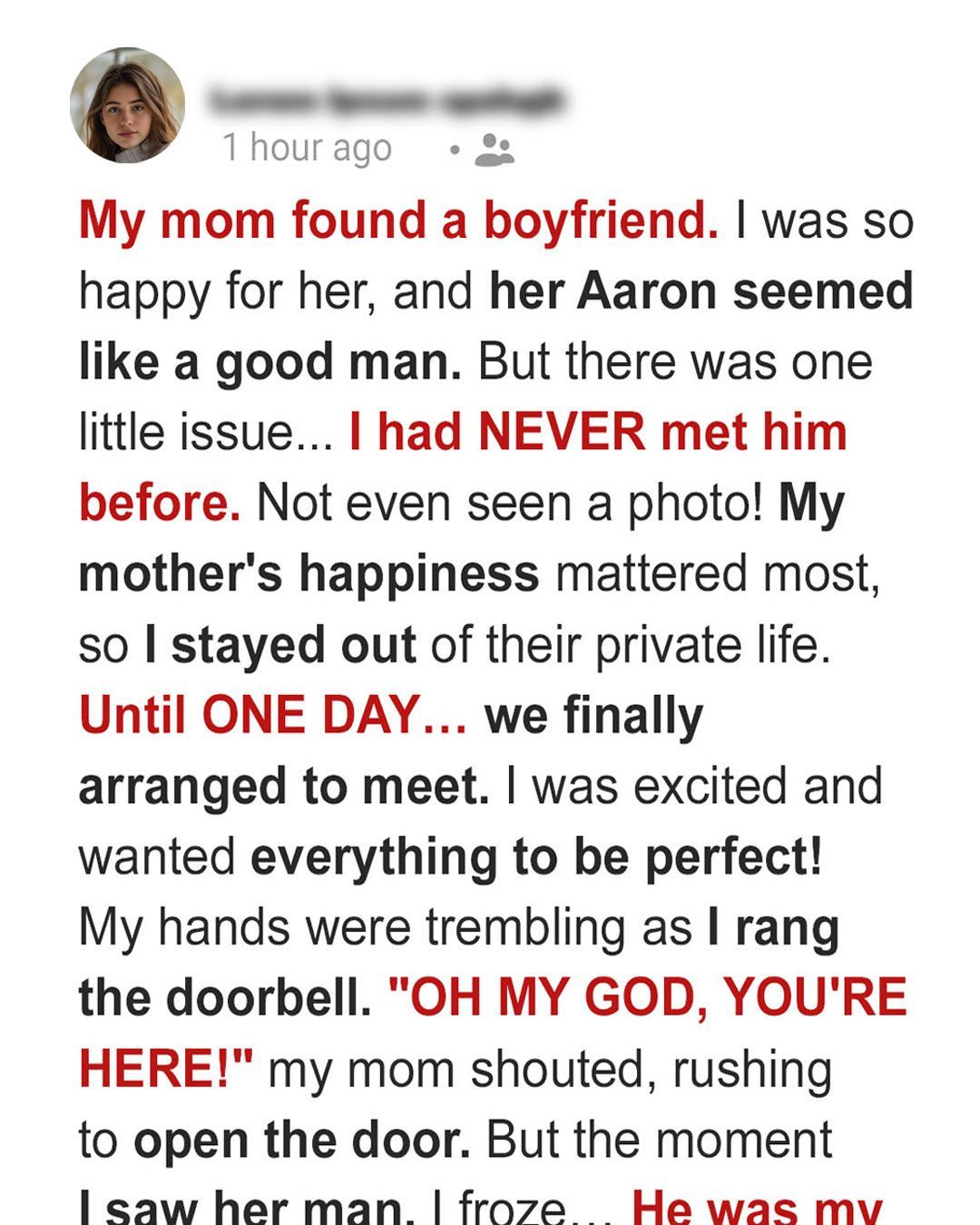When my mom found love again at 45, I genuinely wanted to be happy for her. She had spent years alone after her divorce, and I often encouraged her to find companionship. So when she introduced me to Aaron, her new fiancé, I expected someone kind and dependable. But the moment I met him, I was taken aback—he was only two years older than me. The shock turned into suspicion, and I couldn’t shake the uneasy feeling that something wasn’t right. Convinced he had ulterior motives, I decided to keep a close eye on him.
I pretended to make peace and supported their wedding plans, all the while waiting for Aaron to slip up. He never did. As the wedding day approached, desperation took over. When I went back to the house to retrieve my mom’s forgotten phone, I stumbled upon locked documents revealing large debts under Aaron’s name. Panicked, I rushed to the ceremony and interrupted it, declaring that he was only with her for money. Gasps filled the room as I handed over the papers, believing I had just exposed a con artist.
But what happened next left me speechless. My mom calmly explained that the debts were part of a surprise Aaron had planned for me. He and my mom were purchasing a restaurant to help me achieve my lifelong dream. The documents weren’t proof of betrayal—they were proof of his commitment. Aaron had even offered to work as the pastry chef to support me. My assumptions, fueled by fear and judgment, had nearly destroyed the happiest day of my mom’s life.
Overwhelmed with guilt, I apologized. Aaron, with quiet strength, encouraged me to stay. I sat at the back of the ceremony, humbled, realizing how quickly suspicion can cloud love and truth. That day taught me a lesson I’ll never forget: sometimes, what we fear most isn’t the person in front of us—it’s our own unwillingness to trust.
